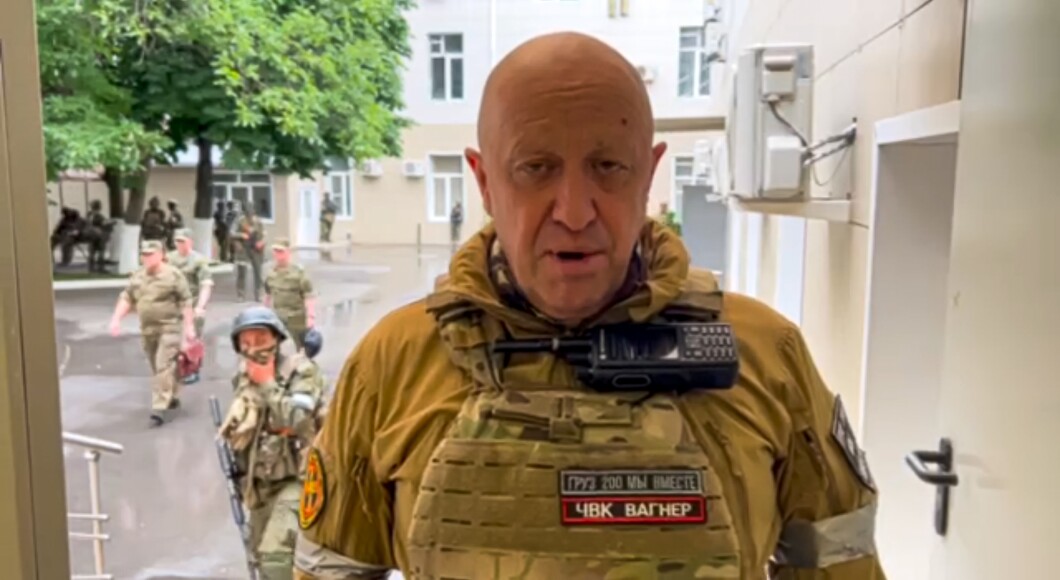
A former Russian inmate reportedly conscripted to fight for the country’s Wagner mercenary forces in Ukraine and then released home has been accused of a gruesome double murder with two other men.
If true, the crime would represent the most recent example of a Russian convict being released early to fight in the war in Ukraine, being allowed to return home to Russia, and then reoffending. Beyond the heinous allegations, the news shines a light on Russia’s war strategy, showcasing the less examined effects the conflict has had on the country.
GOP HOPEFULS POISED TO ENCIRCLE DESANTIS AT OPENING DEBATE
Demyan Kevorkyan, 31, who was given an 18-year prison sentence in 2016, was freed so that he could fight with the Wagner Group, the army of mercenaries led by Yevgeny Prigozhin before his short-lived attempted coup in June, the BBC reported.
Prigozhin recruited Kevorkyan and about 150 other prisoners in August 2022 after visiting their prison, according to the British news outlet, which added that Kevorkyan was recently seen in his hometown of Pridorozhnaya in Krasnodar, in southwest Russia.
On Wednesday, along with two other men, Kevorkyan was accused by Russia’s Investigative Committee of murdering 19-year-old Tatyana Mostyko and 37-year-old Kirill Chubko, two event planners who disappeared after work last Friday night.
After days of searching, investigators found Mostyko and Chubko, along with the car they were traveling in, which was located burnt and left at the edge of a forest, per the Daily Beast. Chubko’s body was found with what investigators called “signs of a violent death.”
Investigators believe the car the pair were driving in got a flat tire, and they pulled over to fix it. But Kevorkyan, as well as Anatoly Dvoynikov and Aram Tatosyan, were also on the road that night, and according to authorities, used the pair’s unfortunate circumstance to rob and kill them.
Tatosyan told a court on Thursday that Kevorkyan came up with the idea to spontaneously kill Mostyko and Chubko, local media reported. Kevorkyan reportedly was a gang leader stretching back almost a decade ago, leading to his sentencing in 2016.
Dvoynikov and Tatosyan reportedly confessed to robbery and murder, but Kevorkyan denied any involvement.
The latter is not the only former convict-turned-Wagner soldier to reoffend after six months in Ukraine, the amount of time Prigozhin required prisoners to stay at the front lines in order to be pardoned and sent home with 100,000 rubles.
The BBC says, “suspects in about 20 serious offenses, including rape and murder, are Wagner fighters recruited in prison and released early to serve in Ukraine.” Prigozhin reportedly welcomed prisoners home in January by saying, “You were an offender, as they say — now you’re a war hero!”
Ukraine has increasingly made an effort to bring the war to Russia, launching drone attacks into buildings in Moscow and sending maritime drones at Russian warships in Russian-controlled waters. The main effect, many have argued, is that Russians won’t be able to ignore the conflict right at their border.

There remain many other ramifications of the war, such as the increasing crackdown on free speech, loss of academics leaving the country, and, with Prigozhin and Russian President Vladimir Putin’s convict recruitment, heightened risk of criminals roaming the streets.
The Wagner Group, prior to its effort to seize power from the Russian Defense Ministry, was perhaps best known for brutal war tactics on the front lines in Ukraine, with large numbers of conscripts thrown right at Ukrainian soldiers with seemingly little concern for their survival.
CLICK HERE TO READ MORE FROM THE WASHINGTON EXAMINER
Russia’s manpower is seen as one of the country’s greatest advantages in its war against Ukraine. Conscripting prisoners has allowed for a steady stream of new recruits to wear out the exhausted Ukrainian army. And a new measure enacted by Moscow is keen on keeping that upper hand.
Russia’s government voted this month to raise the maximum age for conscription from 27 to 30, ensuring its ability to recruit new soldiers.





